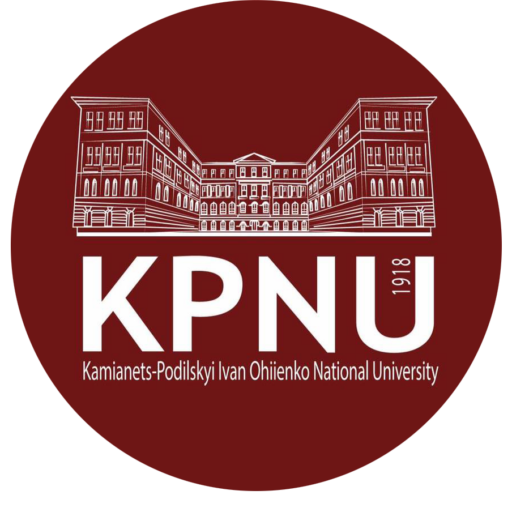Pavlo Nechkaliuk
Vinnytsia State Pedagogical University named after Mykhailo Kotsiubynsky
Scientific Superviser: PhD, Malashchuk-Vyshnevska N. V.
THE SOURCES OF COMIC EFFECT IN THE ANGLO-PHONIC LIMERICKS
Abstract:
The article studies the features of limerick as the unique phenomenon of the English humorous poetry. It focuses upon phonetics as a special source of comic effect in limericks. This function is understood as the implementation of language game, that is, game manipulation of structural elements of language in the permissible limits of the system.
Key words: limericks, phonetics, language game, comic effect.
The question that the natural language is used by the speakers not only for the transmission of information, but also for the purpose of creative expression, the implementation of metamorphic reflection and the reception of intellectual pleasure, has repeatedly been the focus of attention of scientists [1; 2; 3; 4; 5]. In this connection, D. Crystal speaks of the need to study the “language function of the language” (the ludic function of language) [6]. In the light of a study conducted under this function is understood as the implementation of language game, that is, game manipulation of structural elements of language in the permissible limits of the system. The play of functioning of phonetic means of the English language on the basis of texts of traditional genres of English literature, in particular Limerick, is not sufficiently studied.
The views of linguists on linguistic games range from the perception of this phenomenon as a deliberately acceptable deviation from the norm [7; 8] to recognition of its mechanism for the reorganization and restoration of language structures [9]. In this paper, the viewpoint of the heuristic potential of the linguistic game, its ability to serve as a catalyst for linguistic variation [10] and to explore the possibilities of creative use of language by carriers [11] is supported. Thus, the language game represents cases not yet fixed in the universe, unusual, but systemically justifiable and aesthetically valuable manipulations of multi-level elements of language.
Situational meaning, in contrast to the conventional nature of the meaning [12], allows us to use the notion of “game sense” to describe the mental formation that arises in the language consciousness of the participants in the speech act when creating and decoding a message with elements of the language game, which are not inherent components of the language system.
Limerick is a representative example of a mini text, which has a game meaning in the semantic space. This speech product is “an English 5-line form of poetry-nonsense with a 3-stop anapaest in the first, second and fifth stanza, 2-stop – in the third and fourth, and the rhyme aabba” [13]. As stated above, in the presence of strict requirements to form, the content of limerick is often absurd. U. Tigges also notes the verbal nature of the literature of nonsense, designed to attract the attention of the recipient to the text as an artifact, and not the image of reality [14]. A similar shift of emphasis from what is meant by what means, from the information transmitted to the originality of the speech representation of the message is characteristic for game discourse.
Since in the text of Limerick the essential role is played by the canonical verse form, special attention to its analysis deserves the creation of the game sense with the help of phonetic means.
References
- Аристотель. Сочинения: в 4 т. М., 1983. Т. 4. 830 c.
- Витгенштейн Л. Философские работы. М., 1994. 612 c.
- Домашнев А.И., Шишкина И.П., Гончарова Е.А. Интерпретация художественного текста. М.: Просвещение, 1989. 204 с.
- Журавлева О. В. Когнитивные модели языковой игры (на материале заголовков русских и английских публицистических изданий): дисс. … к. филол. н. Барнаул, 2002. 207 с.
- Карасик А.В. Языковой круг: Личность, концепты, дискурс. Волгоград: Перемена, 2002. 476 с
- Crystal D. Language Play. Chicago: University of Chicago Press, 2001. 249 p.
- Барт Р. Від твору до тексту. Антологія світової літературно-критичної думки ХХ ст. Львів, 2001. С. 491–496.
- Дементьев В. В. Креативная формализация речи. Аксиологическая лингвистика: игровое и комическое в общении: Сб. науч. тр. Волгоград, 2003. С. 79–96.
- Барт Р. Удовольствие от текста. Избранные работы. Семиотика. Поэтика. М.: Прогресс, 1989. С. 462-518.
- Арутюнова Н.Д. Типы языковых значений. Оценка, событие, факт. М.: Наука, 1988. 340 с.
- Арнольд И.В. Стилистика современного английского языка: (Стилистика декодирования): Учеб. пособие для студентов пед. ин-тов по спец. “Иностр. яз.”. М.: Просвещение, 1990. 300 с.
- Борев Ю. Комическое. М.: Искусство, 1970. 239 с.
- Гак В. Г. Языковые преобразования: монография. М.: Языки русской культуры, 1998. 768 с.
- Космеда Т. А. Языковая игра – продуктивный прием публицистического стиля современной эпохи. Культура народов Причерноморья. 2002. N 32. С. 297–300.
